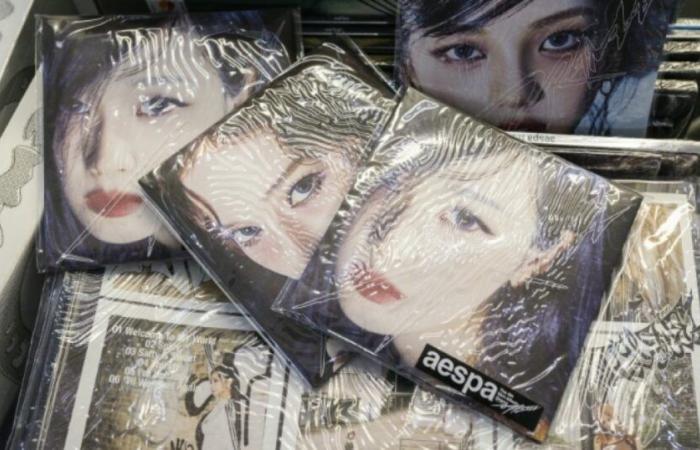Despite competition from streaming, k-pop labels continue to sell records in South Korea thanks to elaborate marketing strategies, but the pollution and plastic waste that this consumption generates alarms some fans.
Kim Na-Yeon, a Korean K-pop fan, used to buy multiple copies of the same album with each new release, hoping to find a “selfie” of one slipped inside. of his favorite stars.
Through rewards such as limited edition “photo cards” of the singers or “vouchers” for a video call with one of them, record labels are enticing K-pop fans to buy more CD.
Over the years, Kim Na-Yeon's shelves were filled with CDs, leading her to question the environmental impact of this consumption habit.
“Each album, in fact, is a lottery ticket,” summarizes Roza De Jong, another K-pop fan, to AFP.
According to her, it is “common to see piles of plastic albums stacked on the stairs and scattered on the streets of Seoul”, with fans buying them just to find a photo or a ticket.
Albums are also sometimes released with different covers.
– “Exploitation marketing” –
“We call it all marketing exploitation,” laments Kim Na-Yeon, accusing music labels of “manipulating” fans’ love for their artists.
More than 115 million K-pop CDs were sold in 2023. This is the first time in the history of this industry that sales have exceeded the 100 million mark.
This is a 50% jump compared to the previous year, even though consumers now preferred to listen to music via streaming, rather than buying physical discs.
Figures have also soared during the Covid pandemic, with experts believing that labels have turned to sales to make up for the lack of revenue from touring.
HYBE, the agency of the flagship group BTS, told AFP that it had made efforts for the environment.
“We use environmentally friendly materials for our albums, video publications and official merchandise by reducing plastics,” HYBE responded to AFP.
However, CDs “are made from materials that are very difficult to recycle” and “this made me think about the amount of carbon emitted to produce them or get rid of them”, explains Kim Na-Yeon.
– Boycott to be excluded –
Made from polycarbonate, they can be recycled but only through a special treatment process that prevents toxic gases from being released into the environment.
In addition to plastic packaging, the production of a CD generates around 500 grams of carbon emissions, according to an environmental impact study carried out by the UK's Keele University.
If we look at the weekly sales of a leading K-pop group, this could represent “the equivalent of the emissions produced by 74 flights around the Earth”, says Kim Na-Yeon.
To discourage the manufacture and purchase of CDs, the South Korean Ministry of Environment began imposing a penalty in 2003.
Last year, labels had to pay about 2.0 billion won (more than 246 million euros), said Yoon Hye-rin, deputy director of the resource circulation policy division at the Ministry of Finance. 'Environment.
This year, South Korea is hosting UN negotiations on a global treaty against plastic pollution that opened Monday in Busan.
While attacking record companies, Kim Na-Yeon declared that she would not boycott artists.
“They are not the ones who know or decide on the marketing plan,” and every fan wants “to see their artist prosper, so boycotting is not an option,” she said.






